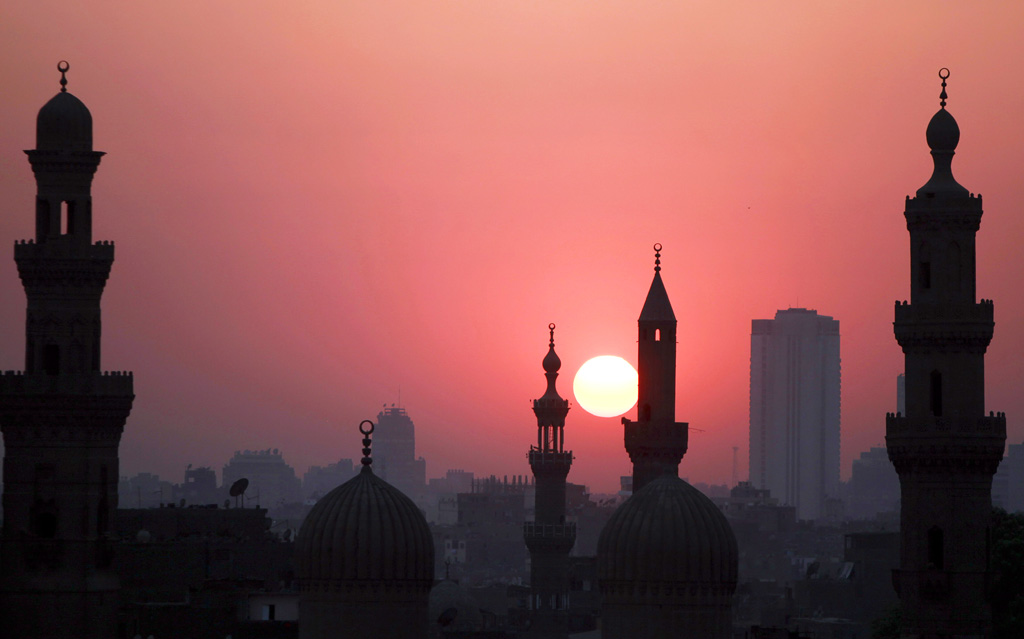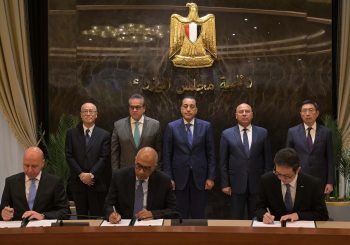Islam is ranked as the fastest growing religion in the world, and is predicted to rival Christianity in terms of global population by 2050. However, it is still misunderstood by millions of people, including Muslims themselves.
Islam, meaning peace and submission to God, is a religion of ethics, obedience and harmony, and is based on a faithful belief system. Conversely, in various parts of the world, Islam is broadly represented as a religion of intolerance and killing.
This portrayal, however, cannot be further away from the truth.
Muslims believe that God’s messenger, Prophet Mohamed, was sent to the world as a ‘mercy to mankind’. Prophet Mohamed is introduced in the Qur’an in these words: [And We have not sent you forth but as a mercy to mankind.] (Al-Anbiyaa’: 107)
This shows that the Prophet’s distinctive quality is being a blessing incarnate in word and deed, not to prompt killing and suffering.
Meanwhile, it is vital to delve into a common confusion and misinterpretation that slowly, but surely adds to the negative portrayal of Islam, the word ‘Jihad’.
Contrary to the popular belief, Jihad is not a synonym for combat.
In Arabic language, the word ‘Jihad’ basically means to strive and exert your utmost effort for any given objective. Additionally, in Islam, Jihad can be classified into several realms; Jihad by the heart, tongue, hand and finally, by the sword.
Unfortunately, the latter is usually the level of Jihad that is most publicized and exposed due to its wide misinterpretation and misuse by extremist Islamic groups for their own interest.
Notably, combative Jihad in Islam means “the declaration of war against belligerent and aggressive non-Muslim powers or against fellow Muslim transgressors”. However, according to the principles of Islamic jurisprudence, Jihad by the sword is not a haphazard decision to be taken by anyone. “The actions of the leader must be guided by the interests of the people and that the interests of the collectivity has, in some cases, precedence over the interests of the individual.”
As a familiar illustration, Prophet Mohamed had only resorted to Jihad by the sword when nonbelievers declared war against him and his message and had initiated fight; there was no alternative except to fight back. But many years before that, he had only employed peaceful invitations and deployed the three other forms of Jihad to achieve his objective.
There are given conditions in which combative jihad should be regulated, such as during a military invasion of a sovereign country, for self-defense purposes, and for fighting back against aggression.
Another form of jihad that is usually overlooked in today’s pursuit of newsworthy headlines is jihad to alleviate religious persecution and establish freedom of religion, which assures the importance of freedom of religion in Islam, and how religious persecution is deemed unacceptable.
Jihad is not declaring war against other religions. It is worth noting that the Holy Quran specifically refers to Jews and Christians as “people of the book” who should be protected and respected. Yet, Islamic groups like ISIS and Al-Qaeda have deliberately put forth and prompted the word’s fallacy, as they intentionally tarnished and brainwashed their followers into joining them, for their very own noble cause of Jihad.
Such groups claim piety, yet their actions only prove infidelity. For instance, it is a known fact that in Islam, the consumption of drugs and alcohol is prohibited.
“O you who have believed, indeed, intoxicants, gambling, [sacrificing on] stone alters [to other than Allah], and divining arrows are but defilement from the work of Satan, so avoid it that you may be successful.” (5:90)
However, according to the Russian Federal Drug Control Service, ISIS are the main drug cartels of the Middle East.
“According to our estimates, IS makes up to $US 1 billion annually on Afghan heroin trafficked through its territory,” the Russian Federal Drug Control Service stated.
Moreover, Al-Qaeda and other terrorist organizations are receiving hundreds of millions of dollars from drug trade in Afghanistan. The American Congressional Research Service estimates that terrorist groups in Afghanistan are receiving around $US 70 to $US 100 million each year from the drug trade. A report by Afghanistan’s Minister of Counter-Narcotics even said that this estimate could be higher, reaching up to $US 400 million.
Since they are Muslims and drug traffickers, how could they claim holiness? They call for jihad, yet they should be the last to make such decisions given their lack of knowledge and vile actions that contradict basic Islamic teachings.
In a time when the ongoing war is one of ideologies, the winner is he whose definition of words is adopted by the greatest number of people. To fight back, spreading awareness and addressing the enlightened minds is the only possible solution, where no troops or weapons can be of any good.
From social media users to media figures and even Muslim scholars and imams, the responsibility is shared amongst us all to spread the true meaning of Islam and its unjustly misinterpreted teachings.
Edited by Ola Noureldin






Comments (6)
[…] The Misconceptions of ‘Jihad in Islam’ Which Tarnish a Religion of Peace – Islam, meaning peace and submission to God, is a religion of ethics, obedience and harmony, and is based on a faithful belief … such as during a military invasion of a sovereign country, for self-defense purposes, and for … […]
[…] The Misconceptions of ‘Jihad in Islam’ Which Tarnish a Religion of Peace – “The actions of the leader must be guided by the interests of the people and that the … ISIS are the main drug cartels of the Middle East. “According to our estimates, IS makes up to $US 1 billion annually on Afghan … […]